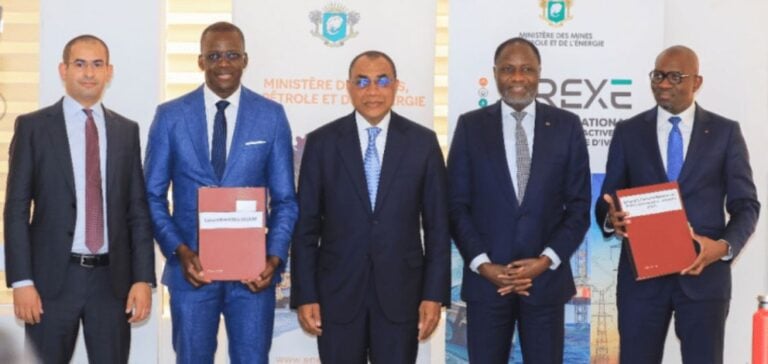Côte d’Ivoire, which is in the process of expanding its energy infrastructure, has just signed a concession agreement with Kong Solaire for the construction of a 50 MWp solar power plant in the north of the country. This project is part of a wider initiative toincrease renewable energy production capacity and meet the growing demand for electricity.
Project background and objectives
The solar power plant will be located near the historic town of Kong, a symbolic site that is now benefiting from investment in a more sustainable future. Kong Solaire, the company in charge of the project, aims to produce more than 97 GWh of clean electricity per year, providing energy for around 240,000 inhabitants. This initiative is part of a public-private partnership (PPP), demonstrating the Ivorian government’s commitment to renewable energies.
Mamadou Sangafowa-Coulibaly, Minister of Mines, Oil and Energy, has included the project in his master plan for the electricity sector up to 2040. This ambitious plan calls for a threefold increase in power generation capacity, from the current 2,907 MW to 8,600 MW. “This project will meet the growing needs of the economy and households,” said the Minister.
Investment and Financing
The total cost of the project is 56 million euros, or around 37 billion CFA francs. Financing will be provided by Kong Solaire’s two shareholders: the Ivorian company Africa Via and InfraCo Africa, an investment company of the London-based Private Infrastructure Development Group (PIDG). This international collaboration underlines the strategic importance of the project in attracting foreign investment to Côte d’Ivoire.
Minkaïla Salami, CEO of Africa Via, expressed her pride in the progress made. “This first 50 MWp photovoltaic project in the Tchologo region marks an important step in our development,” he said. This project follows the recent signing of another concession agreement for a 52 MWp solar power plant at Sokhoro, in the Ferkessédougou division.
Impact and prospects
The Kong solar power plant will have a significant impact on local communities by improving access to electricity and promoting economic development. The project will also help reduce greenhouse gas emissions, supporting national and international environmental objectives.
In addition to the environmental benefits, this 50 MWp project will create local jobs, both during construction and operation. Infrastructure such as transmission lines and substations in the vicinity of the site will enable efficient integration of solar power into the national grid, stabilizing electricity supply for residential and commercial consumers.
The success of this project could serve as a model for other similar initiatives in West Africa, where the solar potential is immense but still largely under-exploited. Collaboration between the public and private sectors is essential to achieve these ambitious goals and promote sustainable development.
Future prospects for solar energy in Côte d’Ivoire are promising, with several other projects currently under development. The government continues to implement incentive policies to attract investment and support the transition to a green economy.
With these developments, Côte d’Ivoire is positioning itself as a regional leader in renewable energies, contributing to energy security and the fight against climate change.






















